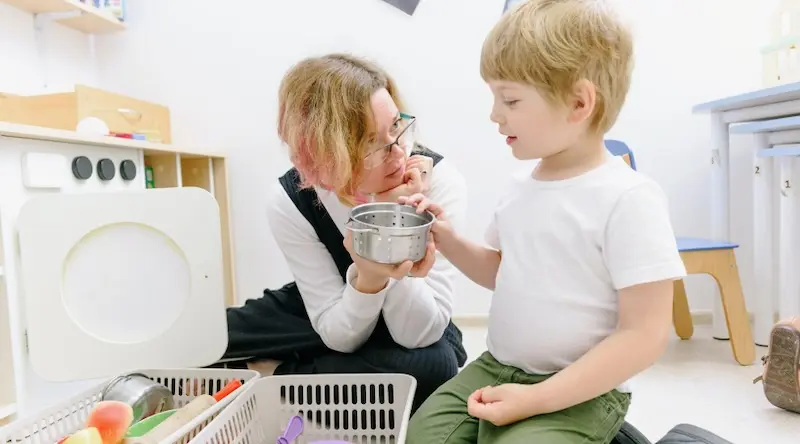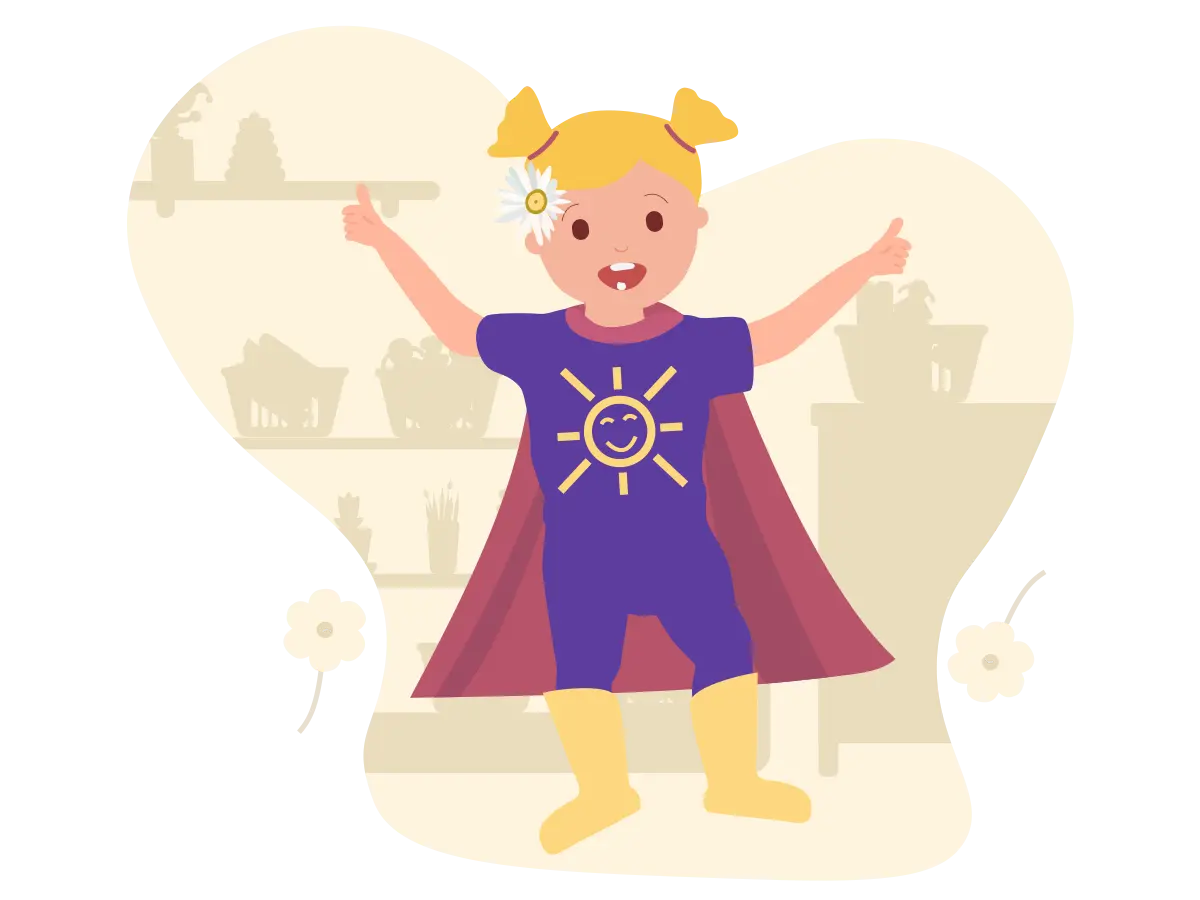settings
children
With Famly since
In my years of working in the sector, there’s nothing that dries out my playdough like being told I’m not a ‘real’ teacher. The start and end of the debate should really be, “Do you teach?”, “Yes,”, “Ah! Then you’re a teacher!”
Except it’s not.
The early years sector is still plagued with the infuriating idea that we simply keep children alive between 8 am and 6 pm, while their parents are at work, and sometimes there’s glitter and stuff. If we do a good job of that, at the end, out pops a delightful 4-year-old pupil, ready for their education to finally start, at school.
But why is the early years sector only seen as important when it’s viewed as a stepping stone to something else?
Let’s get into it.

The mixed messages about the early years
If there’s one thing that unites everyone in the early years, it’s the knowledge that the first five years of a child’s life are insurmountably important. But it’s why this time is so important that can create a divide.
Childcare for parents
In a virtual debate, hosted by Nesta and CYP Now, Early Years Alliance CEO Neil Leitch acknowledged there was “confusion over the purpose of early childhood education.” Neil explained that “Sometimes it’s about child development, sometimes it’s to support social disadvantage, and other times it is nothing more than basically getting parents, predominantly mums, back into the working environment.”
The sector certainly isn’t short of responsibilities.
Foundations for the future
The Royal Foundation Centre for Early Childhood publicly champions the early years as “the best investment we can make for the long-term health, wellbeing and happiness of our society.” Their explanation being, “Our future outcomes, whether they be academic, economic or health-related (including mental health), are profoundly shaped by our first five years.”
But these efforts to express the importance of our early childhood can sometimes send the message that we only have 5 years in which to define and prepare for an entire lifetime or the opportunity is lost forever. Consider for a moment the message that sends to people who had less-than-ideal early childhoods, or the pressure that these kinds of narratives create for early years educators and parents.
For the children themselves
We can embrace every opportunity to nurture and support young children and still acknowledge that, “it’s never too late to give a child or young person positive brain building experiences.” And why? Because buried amongst these conflicting ideas are our under-5s themselves. What about their current health, well-being and happiness?
June O'Sullivan, the Chief Executive of the London Early Years Foundation, believes we should be focussing on “what a happy childhood looks like”. June says, “If you don’t understand what pedagogy looks like and what needs to translate to it in terms of the experience of children, we will get locked in that language of school readiness.”
Which we’ll get into now…

So where does school readiness fit in?
If you’re looking to start a heated debate amongst a group of early years educators, simply sidle up to them and whisper “school readiness”.
Some may share stories of children who started reception unable to complete basic care routines and couldn’t sit still for six seconds. Some might lament that they’re not supposed to assess 4-year-olds and that school should be ready for the children and not the other way around, thank you very much.
So in the UK, where most children start school at the tender age of 4, which group is right?
“Don’t you just play all day?”
For those of us working in the early years, I can understand the temptation to go along with the idea that we exist purely to get children ready for school. School is perceived as where the ‘real educating’ starts, and so if we’re preparing children for that, we might finally be recognised as doing a really important job. Trying to explain that early years is important in its own right is exhausting, so why not just ‘borrow’ some of the reflected respect from ‘Big School’?
But when we know children don’t fit neatly into boxes or lists, should we be playing into the idea that a tick-list of things can indicate a child is “school ready”, regardless of how neurodevelopmentally appropriate those expectations are? At what point do we trade The Unique Child of the years years for The Generic Fits-Neatly-in-a-Box Pupil of primary school? At around age 4, it seems.
Developmentally inappropriate demands
For example, children are often expected to demonstrate ‘sitting still’ as a school ready skill. But Caroline Wright, the Early Childhood Director of Bright Horizons, former Ofsted inspector, and researcher in child development, explains that “A lot of children at 5 have a real difficulty in just sitting still. Physiologically their muscles and bones need to flex and move.”
In fact, argues ECE expert Rae Pica, this developmentally inappropriate approach and focus on school readiness is actually harming children.
“Initiatives like pushing children toward ‘school readiness’ often bring demands that are beyond where children are at, developmentally speaking. This makes them feel stressed out and frustrated, and that has emotional and physical ramifications for them,” explains Rae.
So what on earth should we be doing?

A better approach to the early years
Of course, the early years are critical, but not just as an opening act for the ‘main event’ of starting school and later life. Early Years educators are not warming up the crowd for a school teacher. And I believe most people actually working within the early years know this well. The early years are a magical time, but not because we’re ushering in the next stage or laying the foundation for later life.
Early childhood is valuable in its own right
Learning, joy, and discovery happen from birth and are worthy in the present. If you’ve ever been lucky enough to see a child take their first steps, there is pure joy in that achievement for the sake of it. We tend not to respond with gleeful hand rubbing and comments about how it’s fabulous preparation for walking to school.
And early years educators are teaching. The pedagogy we adopt for under-fives doesn’t look like exactly like traditional school teaching because it’s not supposed to. Our role is to meet children where they are, celebrate them for who they are, and be ready with the next challenge when they are.
In the early years sector, we must continue to shout from the rooftops that the little lives of our under-fives are phenomenally important. And, while nearly everything we do in the early years has an effect on children’s outcomes, it’s perfectly valid if the ‘outcome’ is a smile, in that moment.
The dialogue of preparation, school readiness, foundations and future outcomes has a place, but it can’t be allowed to eclipse the value of the early years, deserving of celebration for its own merit.
The big ideas
Try learning journals for free
Add observations, and build digital learning journals to share with families instantly. All with your completely free 14-day trial.
Get started









